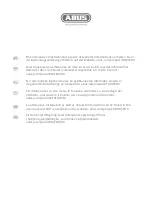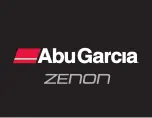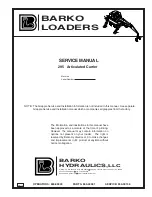
8
INSTALLATION AND MAINTENANCE
LSA 46.2 / 47.1 - 4 POLE
ALTERNATORS
INSTALLATION
Ref. 2981 GB - 4.33/b - 07.02
LEROY-SOMER
3 - INSTALLATION
3.1 - Assembly
All mechanical handling operations must be
undertaken using approved equipment.
Whilst being handled, the machine should remain
horizontal.
3.1.1 - Handling
The generously-sized lifting rings are for handling the
alternator alone. They must not be used to lift the genset. Use
a lifting system which respects the positioning of the rings.
3.1.2 - Coupling
3.1.2.1 - single bearing alternator
Before coupling the two machines, check that both are
compatible by :
- undertaking a torsional analysis of the transmission
- checking the dimensions of the flywheel and its housing, the
flange, coupling discs and the offset of the alternator
When coupling the alternator to the prime mover,
the holes of the coupling discs should be aligned
with the flywheel holes by rotating the primary
pulley on the thermal engine.
Do not use the alternator fan to turn the rotor.
Tighten the coupling disc screws to the recommended torque
(see section 4.6.2.) and check that there is lateral play on the
crankshaft.
3.1.2.2 - two-bearing alternator
- Semi-flexible coupling
Careful alignment of the machines is recommended,
checking that the concentricity and parallelism of both parts of
the coupling does not exceed 0.1 mm.
This alternator has been balanced with a 1/2 key.
3.1.3 - Location
Ensure that the ambient temperature in the room where the
alternator is placed cannot exceed 40°C for standard power
ratings (for temperatures > 40°C, apply a derating
coefficient). Fresh air, free from damp and dust, must be able
to circulate freely around the air intake grilles on the opposite
side from the coupling. It is essential to prevent not only the
recycling of hot air from the machine or engine, but also
exhaust fumes.
3.2 - Inspection prior to first use
3.2.1 - Electrical checks
Under no circumstances should an alternator, new
or otherwise, be operated if the isolation is less
than 1 megohm for the stator and 100,000 ohms for
the other windings.
There are three possible methods for restoring these
minimum values.
a) Dry out the machine for 24 hours in a drying oven at a
temperature of 110 °C (without the AVR)
b) Blow hot air into the air intake, having made sure that the
machine is rotating with the exciter field disconnected.
c) Run in short-circuit mode (disconnect the AVR) :
- Short-circuit the three output power terminals using
connections capable of supporting the rated current (try not to
exceed 6 A/mm2)
- Insert a clamp ammeter to monitor the current passing
through the short-circuit connections.
- Connect a 24 Volt battery in series with a rheostat of
approximately 10 ohms (50 W) to the exciter field terminals,
respecting the polarity.
- Open fully all the alternator openings.
- run the alternator at its rated speed, and adjust the exciter
field current using the rheostat to obtain the rated output
current in the short-circuit connections.
Note : Prolonged standstill : In order to avoid these problems,
we recommend the use of space heaters, as well as turning
over the machine from time to time. Space heaters are only
really effective if they are working continuously while the
machine is stopped.
3.2.2 - Mechanical checks
Before starting the machine for the first time, check that :
- all fixing bolts and screws are tight
- cooling air is drawn in freely
- the protective louvres and housing are correctly positioned
- the standard direction of rotation is clockwise as seen from
the shaft end (phase rotation in order 1 - 2 - 3).
For anti-clockwise rotation, swap 2 and 3.
- the winding connection corresponds to the site operating
voltage (see section 3.3)
WARNING
ARNING
WARNING
ARNING









































